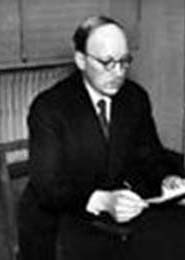C-in-C of the German Navy from 1935; oversaw the growth of the Kriegsmarine from a tiny coastal force into a powerful, modern fleet in the 1930s; at first hoped to build up a large, coherent battlefleet, but accepted a commerce-raiding strategy as war approached more quickly than the German naval staff had imagined likely; nevertheless remained associated with the building of big warships in preference to small craft and submarines; highly professional, aloof and a strict disciplinarian, became less and less comfortable in his relations with Hitler as the latter's faith in surface warships was progressively eroded in the first years of the war; disagreements over strategy came to a head when Hitler determined to scrap the surface fleet altogether in early 1943 and he retired on January 30; was sentenced to life imprisonment at Nuremberg, but was released in 1955.

recalled from the Royal Navy retired list in 1939 to act as Flag Office, Dover, and was thus responsible for the evacuation of the British Expeditionary Force from Dunkirk; subsequently commanded the Allied naval forces for the amphibious landings in North Africa and in Sicily; in 1943 was appointed naval C-in-c under Eisenhower to plan and direct the highly successful Operation Neptune, the naval element of Operation Overlord, the Allied invasion of Normandy in June 1944; was killed in an air crash in January 1945 while en route to a conference at Montgomery's 21st Army Group HQ.
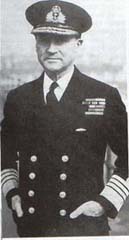
an ambitious German career officer who followed Gen Blomberg into the German War Ministry in 1933, co-operating fully with the Nazis; commanded the 10th Army for the invasion of Poland in 1939 and the 6th Army for the Western Offensive in Belgium and France in 1940; promoted field marshal, was sent to command first 6th Army and later Army Group South in place of von Rundstedt; was responsible for issuing orders of extreme brutality, including the 'Severity Order' which prescribed the vicious treatment of Russian prisoners and for which he would undoubtedly have been brought to trial had he survived the war; died of a stroke in 1942.
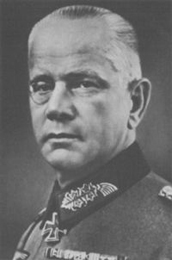
French politician who succeeded Edouard Daladier as premier, March 21, 1949, and was a strong advocate of resistance to the German Western Offensive, launched in May 1940; his support for Churchill's proposal for an Anglo-French Union caused the 'defeatists' led by Péteain to unite to force his resignation on June 16, 1940; was arrested by Pétain's Vichy government in September and was later one of the accused in the notorious Riom Trial of 1942, tried by them and deported to Germany in 1943; was released in 1945 but never resumed a role in French politics.
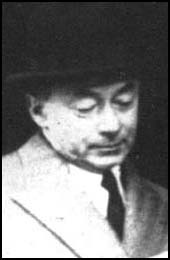
German Foreign Minister from 1938, an effective functionary, though generally not the initiator of most of the diplomacy in which he was involved; founder of the 'Ribbentrop Bureau' under Hess's Pary secretariat in 1933, which rivalled the functions of the German Foreign Ministry, his duplicate organization sought to prove the superiority of Nazi methods over the traditional foreign service (a strategy for usurping traditional state power bases that became common Nazi practice); his success was demonstrated by the independent conclusion of the Anglo-German Naval Treaty in May 1935, and the addition of Japan's signature to the Anti-Comintern Pact in 1936; finally, in February 1938, Hitler dismissed the Foreign Minister, von Neurath, and Ribbentrop succeeded to the high Nazi aristocracy, acting as Hitler's adjutant for the period of armed diplomacy which immediately preceded the outbreak of war; subsequently retained his status, though war had superseded diplomacy; was arrested in June 1945 and tried at Nuremberg with the major defendents; like others, claimed ignorance of concentration camps, racial extermination policies and other Nazi crimes; was found guilty and hanged.
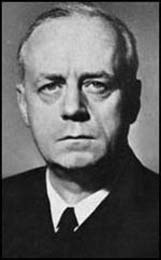
led the crack US 82nd Airborne Division with distinction in Sicily, Italy and Normandy, and then commanded the XVIII Airborne Corps through the Market-Garden, Ardennes-Alsace and Rhineland campaigns of late 1944 and 1945; later led United Nations forces in Korea.
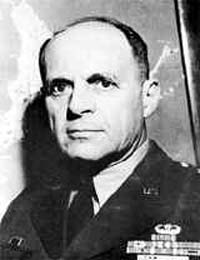
on November 26, 1941, was given command of the British 8th Army, replacing Sir Alan Cunningham in the midst of the major Crusader offensive against Rommel's forces in Libya; had been Assistant Chief of Staff to Gen Auchinleck in Cairo and had little experience of combat command, but was appointed as the executor of his chief's determination to continue the faltering offensive; his tenure was not a great success; following defeat at Gazala and the fall of Tobruk in June 1942, his army was in disorderly retreat when Gen Auchinleck took over personal command in the field; Ritchie's planned full-scale defense of Mersa Matruh was then abandoned in favor of a further withdrawal to El Alamein; in 1944 returned to combat as a corps commander in Northwest Europe.

Italian staff officer who became military ataché in Berlin in 1939, and Chief of the Italian General Staff in March 1941; commanded the Italian 2nd Army during the Balkan campaign, and was Chief of Staff when Mussolini was overthrown in July 1943; his association with Fascism resulted in his dismissal in November 1943 and his trial by an Italian court in 1945, though he escaped before the sentence of life imprisonment was passed on him; the sentence was overturned by appeal in 1948.

during the Nazi rise to power and the early years of Hitler's regime, headed the SA (Sturmabteilung), commonly known as the 'brownshirts'; Hitler feared the growing power of the paramilitary SA and ordered the SS to assassinate him and other SA leaders during the 'Night of the Long Knives', June 30, 1934.
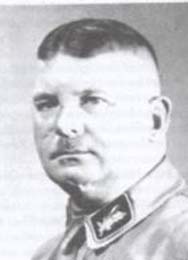
highly regarde Soviet front commander, was consripted into the Tsarist Army at the outbreak of World War I and imprisoned during the Stalinist purges of 1937-8 but was reinstated as a corps commander in the Kiev Military District under Gen Zhukov in the spring of 1940; after the German invasion of Russia, fought under Zhukov first at Kiev and then in the Battle for Mosco in December 1941, where he commanded the 16th Army with distinction; transferred to Stalingrad, directed the decisive breakthrough on that front which led to the encirclement of von Paulus's 6th Army, and accepted the German general's surrender; later commanded the Central Front during the Battle of Kursk and the 1st Belorussian Front which pushed the German center forces across the Polish frontier, taking Lublin and Brest-Litovsk in 1944, although his advance was halted in July, and held up for 6 months outside Warsaw; his otherwise impressive record bears the stigma of events in Warsaw, where the Soviet armies encouraged and then failed to support the local uprising, brutally crushed by German forces in a barbarous campaign costing some 300,000 civilian lives; after the reorganization of Soviet forces for the final offensive launched at the start of 1945, led the 2nd Belorussian Front in the drive north to Danzig; after the war, went to Poland where he served as Minister of National Defense.
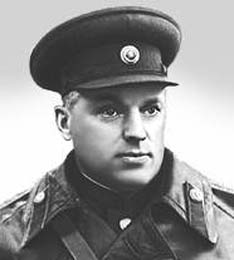
famed Desert Fox; was a dashing exponent of mobile warfare and forward leadership; commanded the 7th Panzer Division with flair in France in May-June 1940; built a reputation as a first-rate tactician and leader of the Afrika Korps; ordered next to France as commander of Army Group B; worked to build the English Channel coast defenses; blunted early Allied attempts to break out of the Normandy beachhead; recuperating from wounds, came under suspicion of complicity in the July 1944 plot to kill Hitler; was offered choice of committing suicide or standing trial; chose suicide and was given a hero's funeral.

the tall, energetic, gregarious wife of President Franklin D. Roosevelt; played an active role in boosting US and Allied morale during World War II; served as a special envoy for her husband to Great Britain, Australia and other countries; toured war plants, military bases and hospitals all over the country; visited US military personnel overseas; made many friends for the United States and later became a highly respected delegate to the United Nations, where she chaired the UN Commission of Human Rights (1946-1951).
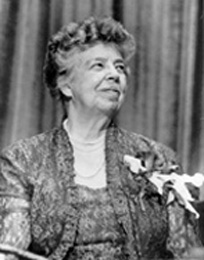
although disabled by polio, the Harvard graduate and onetime assistant secretary of the navy overcame his illness to be elected governor of New York (1928) and then president (1932); rallied his nation during the Great Depression and made it the great military and economic 'arsenal of democracy' that ensured victory in World War II; had the forsight to support the British when they stood alone in 1940 and understood the danger of Japanese militarism in Asia and the Pacific; although legally bound by US neutrality laws, found ways to ship material fo the British through the Lend-Lease program; attempted to prepare the American people for what he knew was inevitable, the US entry into World War II; was one of the architects of the winning military strategies that were needed to fight a war on 2 fronts; championed Chinese interests; aided the Soviets; and insisted upon the 'unconditional surrender' of Germany and Japan; charismatic and occasionally devious, was a generous and idealistic leader whose unwavering advocacy of freedom and dignity inspired millions; although usually appeared healthy and vigorous, in fact, had suffered from congestive heart failure for many years; was physically exhaused by the time of the Yalta Conference in February 1945; died at Warm Springs, Georgia, on April 12, 1945, on the eve of the European victory for which he had toiled; is remembered as one of the great presidents of the United States.
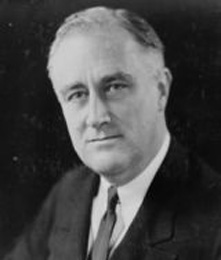
an early Nazi anti-Semitic ideologue, came from Russian Estonia to Munich after the Russian Revolution to write for extreme nationalist and anti-Semitic publications; joined the early Nazi Party and was given a Party rather than a national post in 1933; in 1940 set up a task force to collect and loot art treasures from conquered Europe; in 1941 became Minister for the occupied eastern territories; was arrested by the British in 1945 and included among major defendants at the Nuremberg Trials; found guilty of crimes committed in eastern Europe and hanged.
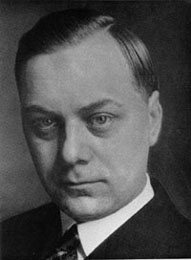
German forces commander for the Western Offensive in 1940 and for the German defense against the Allied landings in Normandy in 1944; promoted general in 1927 after service in France and Turkey during World War I, had become one of the most senior German Army commanders when he was sent into retirement in 1938 following Hitler's purge of the High Command; recalled for the planning of the invasion of Poland, was given command of Army Group South in August 1939 and later led the invasion of France in 1940 with command of Army Group A; it was on his orders that German armored forces halted behind Dunkirk, ostensibly to allow the Luftwaffe the finishing blow to British forces withdrawing there, thus providing the opportunity for the British evacuation. Promoted field marshal after the victory in France and named commander of Army Group South for the invasion of Russia, was dismissed in November 1941 for directing his forces in a tactical retreat at Rostov, and later reinstated to command Army Group West in France in March 1942; remaining in command to face the Allied invasion of Normandy in June 1944, was again removed from command for suggesting that the war should be ended, briefly arrested in the purges following the July Bomb Plot against Hitler's life, and then had to preside over the Court of Honor established to discuss the involvement of Army officers in the Bomb Plot; was again reinstated to direct the retreat to the Rhine and the last Ardennes offensive in December; retired from active service in March 1945; a British prisoner of war, was generally regarded by them as a professional who had maintained some distance from the excesses of other Third Reich generals, although there were discussions about bringing him to trial for war crimes after the war.
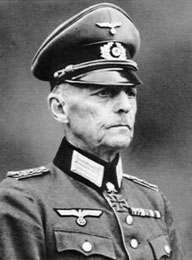
was the virtual ruler of Poland and Commander in Chief of the Polish Armed Forces when the Germans invaded in 1939; did not mobilize his country in time and then conducted a defense which did not take into account the speed of the Germans' advance; 2 weeks after the invasion, ordered a withdrawal into southeastern Poland hoping to establish a concentrated center of resistance which could wait until British or French aid arrived; at this point the Soviet Union invaded eastern Poland and the Army caved in; escaped with his govenment to Rumania where they were imprisoned; was dismissed from his posts by Sikorski and his government-in-exile in London; escaped from Rumania in 1941 and returned to Poland to join the resistance; was probably killed by the Germans in 1943.

was elected to the Finnish diet in 1919; later served as minister of finance (1921–24) and as governor of the Bank of Finland (1923–44), winning admiration for improving the country's international credit despite its war debt and the effects of the depression; was prime minister during the Russo-Finnish War of 1939 and 1940; became president of Finland in late 1940; made alliance with Germany against the Soviet Union in World War II which resulted in his resignation in 1944 after Finland's defeat; the following year, in a Soviet-sponsored trial, was convicted as a war criminal; In 1949, his 10-year sentence was commuted because of his deteriorating health.
